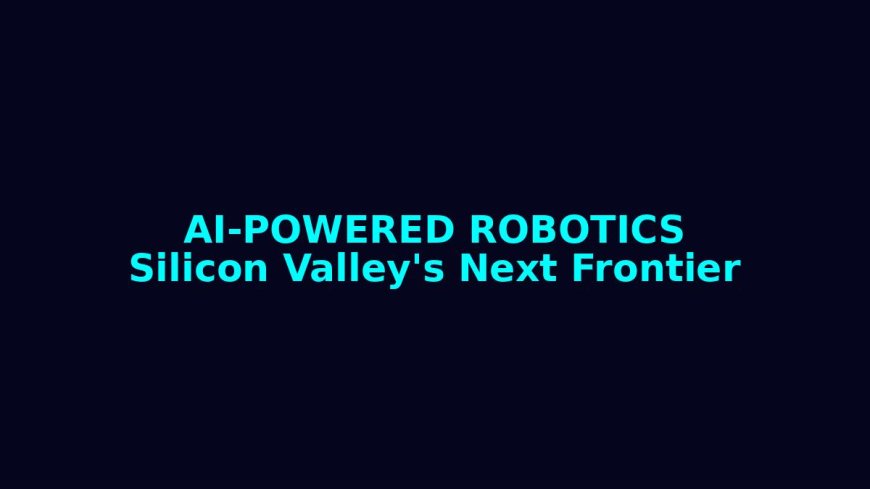Silicon Valley’s Race for AI-Powered Robotics Heats Up
Tech giants and startups alike are pouring billions into AI-powered robotics, fueling a new industrial revolution that promises to change everything from manufacturing to personal assistance.

Silicon Valley’s Race for AI-Powered Robotics Heats Up
By GlobeStream Media Tech Desk
Published: June 2, 2025
Once the realm of science fiction, AI-powered robotics is now the centerpiece of Silicon Valley’s next great innovation race. Leading tech firms — from legacy giants like Google and Amazon to agile startups like Aurora Dynamics and Neura Robotics — are investing billions into creating smarter, more versatile robots poised to transform industries and daily life.
From Assembly Lines to Everyday Lives
While robotics have long been a fixture in heavy industry, today’s AI-driven machines are breaking out of the factory and into more dynamic environments.
Tesla Robotics has unveiled the latest version of its humanoid robot, Optimus Prime 2.0, boasting refined movement capabilities, autonomous learning algorithms, and the ability to handle complex household tasks.
Meanwhile, Boston Dynamics, now backed by Google’s DeepMind division, is pushing new boundaries with its advanced mobility platform Atlas AI, enabling robots to navigate unpredictable terrain and make real-time decisions — a critical step toward autonomous disaster response teams and service industries.
The Intelligence Revolution
What differentiates the new generation of robotics is not just hardware sophistication but AI-powered cognition. Machine learning algorithms now allow robots to:
- Adapt to new tasks without reprogramming
- Understand and respond to human emotions and language
- Navigate unfamiliar environments with minimal guidance
- Predict human needs and optimize workflows
“The real breakthrough isn’t just building robots that move, but robots that think, learn, and evolve,” said Dr. Helena Zhao, Robotics AI Lead at Stanford University.
AI integration allows robots to work alongside humans, opening doors to collaborative robotics (cobots) in sectors like healthcare, logistics, agriculture, and even education.
The Funding Frenzy
Investment in AI robotics has hit an all-time high in 2025, with venture capital firms pouring over $120 billion into the sector in the first half of the year alone. Companies like Neura Robotics, specializing in human-like robot interaction, and Aurora Dynamics, developing AI-driven exoskeletons, have closed mega-rounds topping $5 billion each.
Major tech conferences like CES and Web Summit have spotlighted AI robotics as the most disruptive technology of the decade, capturing the imagination of investors and innovators alike.
Challenges and Ethical Questions
Despite the excitement, the surge raises questions about job displacement, data privacy, and robot autonomy. Critics argue that widespread robotic deployment could lead to large-scale unemployment and deepen social divides.
Governments and industry leaders are under pressure to draft new regulatory frameworks that balance innovation with ethical considerations.
“We are at a crossroads,” said Prof. Miguel Santos, a robotics ethicist at MIT. “Robots will change the world — but whether it’s for the better depends on the choices we make today.”
The Future Is Autonomous
From AI home assistants that can cook your dinner to warehouse robots that learn and adapt on the fly, the robotics revolution is no longer a question of if — but how fast.
Silicon Valley’s race for AI-powered robotics is setting the stage for a new industrial revolution — one that could see intelligent machines seamlessly integrated into every facet of modern life.
And as the tech world accelerates, one thing is clear: The future will not just be automated — it will be intelligent.
What's Your Reaction?






























